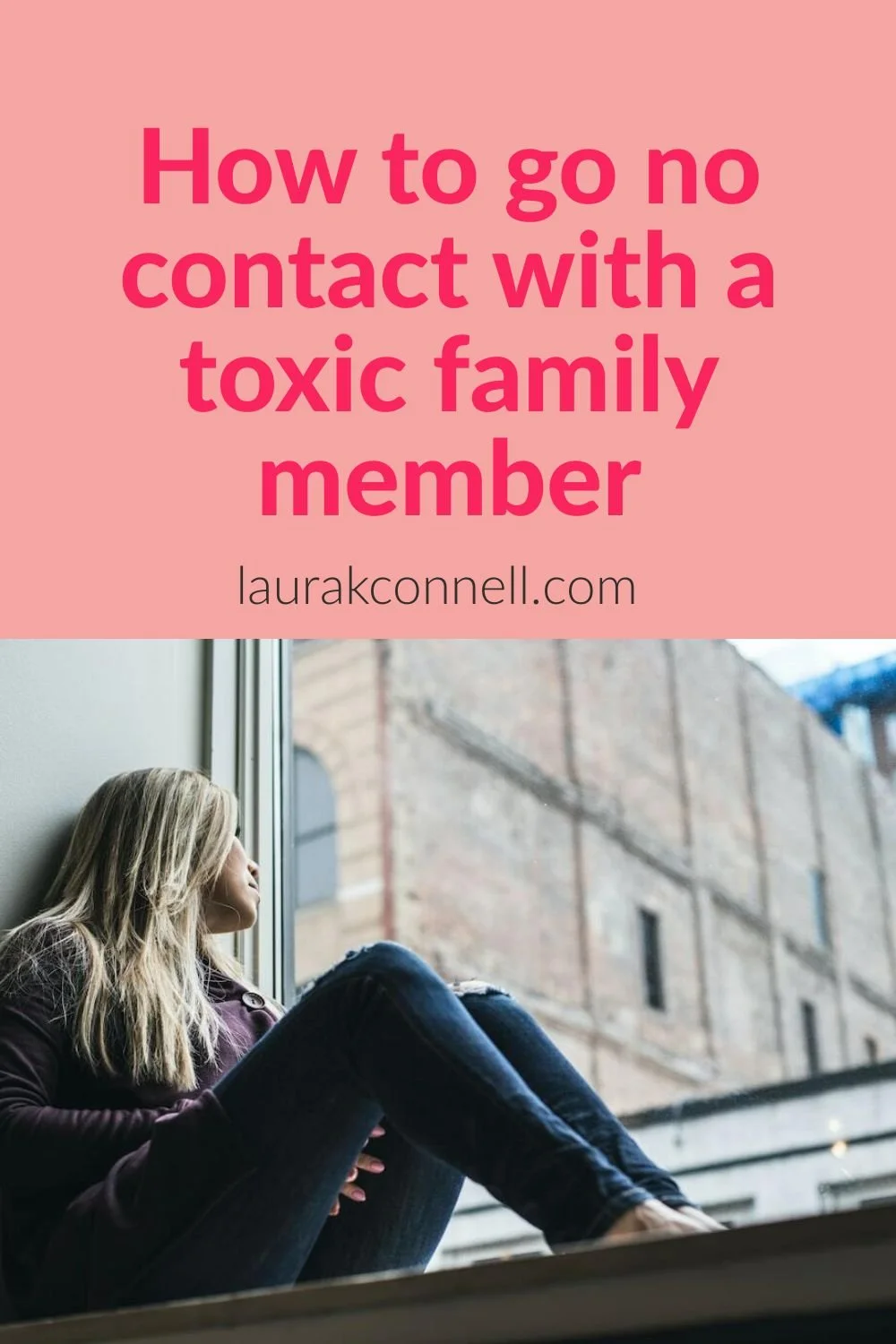How to go no contact with a toxic family member
If you're considering going no contact with a toxic family member, it's likely you've tried everything you can to forge a functional relationship.
If you're the family scapegoat or they're a narcissist (or both), they've used gaslighting to make you believe the problems between you are your fault.
They've conditioned you to take on the role of repairing things between you over and over. Even when it's their behavior that's caused the rift in the first place.
I'll give you an example. My narcissistic mother used to disown me any time I said no to one of her many manipulative requests.
Then she'd come around as if nothing had happened and I would enable her by pretending everything was fine. Lather, rinse, and repeat.
Taking the high road or being the bigger person is typical of the child of a narcissist. You're used to managing their emotions at the expense of your own and wouldn't think of holding them accountable for their ways.
Somehow, they've got you believing it's your job to pick up the pieces they've thrown on the ground. They behave in bizarre ways, then expect you to act as if nothing out of the ordinary happened.
Why no contact feels so hard
If you dare react to their antics, they will make you wrong for your normal reaction to absurd behavior. And because this all started in childhood, you experience their rejection as a life or death situation.
As a child you needed to stay in your parent's good graces because you depended on them to survive. Your nervous system doesn't understand that you're an adult now and don't need them anymore.
So, you abandon yourself and your own needs, denying reality to restore things to the way they were. And the dysfunction continues ad nauseum and ad infinitum.
If, like me, you've tried everything to fix a relationship and nothing worked, you might be dealing with a narcissist. These people lack empathy or compassion and will never see your side of things or feel remorse for how they've hurt you.
Most of my clients come to me for help dealing with toxic family members. Their pain derives from the false belief that they need this person to understand them in order to feel peace.
Nothing could be further from the truth.
Why your efforts never work
Their refusal to understand you is intentional and designed to prevent the truth from coming out. Toxic people have no interest in changing. They point the finger at others and never at themselves.
If they see your point of view, that means admitting they were wrong. The narcissist will avoid this kind of exposure at all cost.
That's why they've refused to acknowledge your feelings or take responsiblity for their part. They care more about holding onto a false image of themselves than their relationship with you.
When you finally see the truth that they will likely never change you may decide to end the relationship. Often, no contact comes when you stop repairing something you never broke.
But, of course, they will twist things as they always do and make everyone think YOU are the one hurting THEM. Freedom comes in letting go of what others think and doing what's best for you.
No contact will feel excruciating if you've become enmeshed or codependent. You will need support to endure the early stages from someone outside your family.
Family members you thought you could trust become flying monkeys. These are people the narcissist enlists to do their bidding, ie., calling you to tell you how sad you have made your abuser.
Resist the urge to explain or tell your story to anyone. You've done nothing wrong and don't need to defend yourself. Focus on moving forward rather than revisiting this dead relationship over and over.
Gray rock method
But what if it's someone you can't cut ties with such as a co-parent? An alternative to estrangement can come in the form of a psychic adjustment. It means relating to this person in a new way.
Warning: if someone is threatening you physically or emotionally, it's time to get help or engage law enforcement. This post deals with situations that don't have you in immediate danger.
When no contact is not an option, you can deny the narcissist their supply by refusing to share any information about yourself beyond surface level.
They get off on riling you up so stop responding emotionally to their tactics. Become as uninteresting as a gray rock. Often, this will frustrate the narcissist and force them to look elsewhere for their next victim.
When they dig for information on you, turn it around to them. This might sound strange, but it lets you navigate a toxic relationship without losing yourself.



